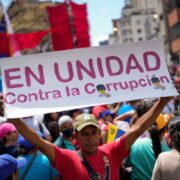Pirma is back: Cha-cha drive on air, on ground
Interior Secretary Benhur Abalos denied his agency had any hand in the Cha-cha petition.
“As far as the DILG (Department of the Interior and Local Government) is concerned, our personnel and officials are prohibited from initiating such signature campaigns. We could probably only see and monitor this because this is a valid exercise of each individual’s right,” he said.
During the Duterte administration, the DILG spearheaded a petition calling for the lifting of the “restrictive economic provisions” in the Constitution.
Founded by former National Security Adviser Jose Almonte, Pirma was formed in a bid to change the Constitution through a people’s initiative—essentially a petition signed by 12 percent of the country’s total registered voters.
This is one of three ways to make amendments to the Charter; the other two are via constituent assembly, which is composed of lawmakers, and via constitutional convention, whose members are elected.
During the presidency of the late Fidel V. Ramos, Pirma proposed a shift to a parliamentary system of government and the lifting of term limits on elected officials.
The campaign drew outrage with the political opposition accusing Ramos of being behind it, but he denied this. Later, the Supreme Court unanimously shot down Pirma’s initiative, with eight justices saying there was no enabling law for it, and six others ruling that the petition was defective.
Failed attempts
Succeeding administrations also saw a number of failed Cha-cha attempts.
Former President Joseph Estrada pushed for what he called Concord, or Constitutional Correction for Development, which he said was intended to allow foreigners to own land, public utilities and media outfits. But this met with strong opposition from the Catholic Church and other sectors, forcing him to shelve the proposal in January 2000.
During the term of President Gloria Macapagal-Arroyo, another initiative called “Sigaw ng Bayan (people’s call)” was launched, but the Supreme Court rejected it in October 2006, citing its failure to comply with the basic requirement that the “initiative must be directly proposed by the people.”
The late former President Benigno Aquino III, son of the late former President Corazon Aquino, under whose government the present Constitution was formed after the peaceful uprising that toppled Ferdinand Marcos’ regime in 1986, was firmly against Cha-cha.
In December 2016, former President Rodrigo Duterte signed Executive Order No. 10 creating a consultative committee to review the provisions of the Constitution. But this move did not prosper.
After he won the 2022 elections, President Marcos, son and namesake of the late dictator, said Cha-cha was not his priority. But in December, he said the government had begun to consider amending the Constitution’s economic provisions to attract more foreign investors.
In the Inquirer interview, Avisado said Pirma’s first campaign had failed because the Supreme Court had ruled that only amendments, and not revisions, could be made through a people’s initiative.
“But this time around, we think a long time has already passed and maybe the Filipinos are now ready to discuss (the possibility of amending the Charter),” Avisado said.
He said the group was not trying to alienate the framers of the Constitution or tarnish the memory of Edsa revolution.
Tantamount to bribery
“We give credit to the people behind Edsa and what Edsa stands for and we would never diminish the contributions of Edsa,” he said, adding: “That was just a creative way to attract the attention of the people [to provoke] public discussion.”
But human rights lawyer and former Bayan Muna Rep. Neri Colmenares was not amused by the commercial, saying he wondered “if the funds for the ‘Edsa Pwera’ ads come from public funds.”
In a statement, ACT Teachers Rep. France Castro said she and her fellow Makabayan lawmakers, Gabriela Rep. Arlene Brosas and Kabataan Rep. Raoul Manuel, were planning to file a House resolution to “probe the funding used for the pro-Charter change ad now running on television.”
In response, Avisado said the commercial was a purely “private-led initiative” and that no government officials were involved. —WITH REPORTS FROM INQUIRER RESEARCH, DEXTER CABALZA AND JEANNETTE I. ANDRADE INQ
















